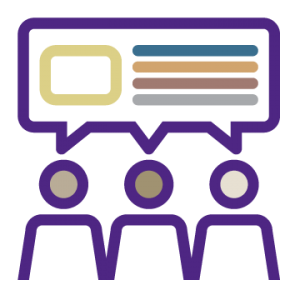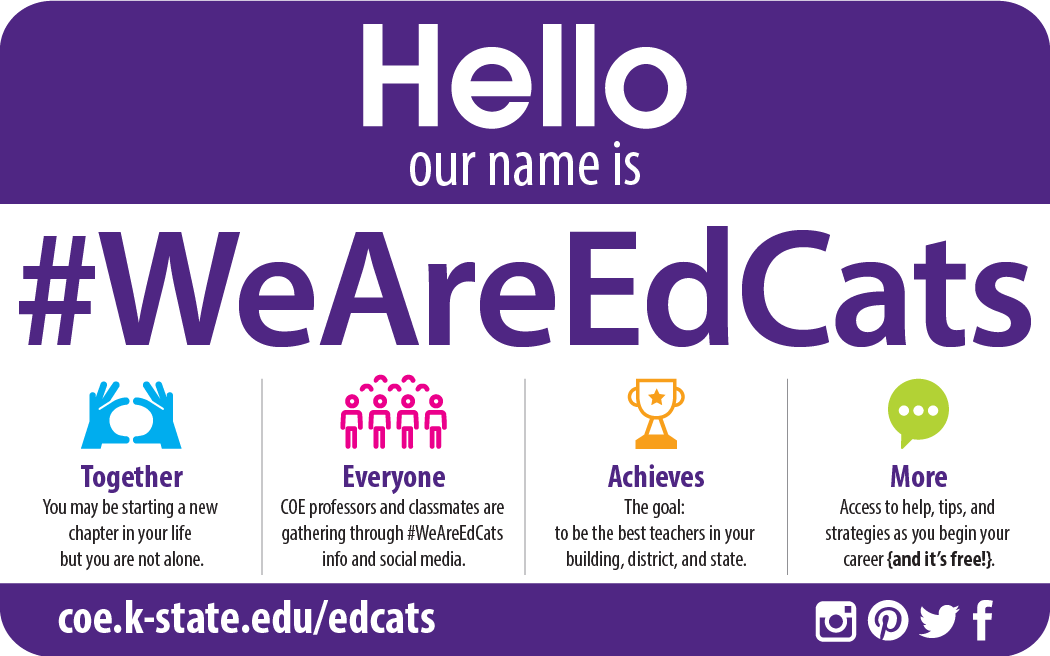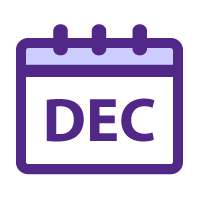Lori Goodson, Editor
Mary Hammel, Technical Editor
Category: November 2018
In the Classroom: Hayden Hudson


School district: Maize USD 266
City/State: Maize, KS
Class/content area taught: 8thGrade US History
What you are most excited about with your new career: I am most excited about getting to work with kids both in and out of the classroom. It has also been exciting to get to be on my own. During student teaching, you have to kind of do lessons within what your cooperating teacher is doing, so getting to make and teach lessons within your own classroom is really cool.
What you enjoy most about teaching: I really enjoy lunch duty! I cannot recommend it enough. You lose your lunch hour, but you get to interact with students out of the classroom, which is really awesome. It can get a little stressful and wild at times, but definitely worth it.
Ways your school/district has supported you: Maize is an awesome school district. I have a mentor who has been a huge help to me. They have been there when I have questions or need to vent some things out. In addition to this we have new teacher meetings throughout the year on things other than school, like financial planning. So far they have been awesome to me.
How you believe KSU especially helped prepare you for your new career: Kansas State is really good about preparing you for the fact that you will never be fully prepared. They give you so many tools to help you be successful, but KSU lets you know that they are always there to support you because there are going to be things that you aren’t prepared for.
Specifics about your background that make teaching the perfect fit for you: I grew up around schools. My dad was a teacher and is currently a high school principal. My aunt is currently a kindergarten teacher and my sister is working towards being a teacher as well. Education as always been a part of my life and it felt natural for me as a career choice.
Suggestions/encouragement for new teachers: This may be cliché, but I would tell new teachers to embrace the grind. The first year is going to be tough. You are going to wonder why you are so tired all the time. You are going to feel like you have no life outside of school. It will be tough, but I think that you will get through. The reason I say “think” is that I haven’t made it through my first year yet. So dig in and embrace the grind.
A Faculty Meeting Survival Guide
 At this point, you’ve probably experienced a teaching tradition—which can’t be replicated anywhere else but within the walls of your school: The faculty meeting. You’ve probably attended two to three faculty meetings, and you’re trying to figure them out. We’ll try to address some of those burning questions you have about the ever-popular faculty meeting.
At this point, you’ve probably experienced a teaching tradition—which can’t be replicated anywhere else but within the walls of your school: The faculty meeting. You’ve probably attended two to three faculty meetings, and you’re trying to figure them out. We’ll try to address some of those burning questions you have about the ever-popular faculty meeting.
- Where do I sit? With my content teachers? My new friends? My mentor (who may or may not be my friend)? The faculty member who intimidates me the most? When you start teaching, sitting down at a faculty meeting will bring back visions of your life as a fifth-grader trying to find a spot on a school bus. Uncomfortable, humbling, awkward at best. Use the same approach you did then: Look for a smiling face—one that says “I’m not gonna steal your lunch money.” And maybe one that says, “Welcome, friend!”—only probably not quite so directly. At some meetings, you’ll find it beneficial to sit with those who are teaching similar content or age group as you; other times, by all means go with the most welcoming faces.
- How much should I say at these meetings? Should I speak my mind? There is no magic rule about this, though you’re encouraged to observe for the first few meetings. Jumping in immediately with your ideas can be a risky move, no matter how earth-shatteringly amazing you believe your ideas are. Often, as a new teacher, it’s best to quietly share your ideas with a colleague, who can help you avoid any issues that may have existed long before you joined the faculty.
- How do I deal with the colleague’s running commentary throughout the meeting? Well, smiling is always a good response—it’s neutral, not too supportive, not too negative. You’re new here, so take some time to figure out the power structure of the faculty. In time, you’ll know when it’s OK to laugh out loud and when it’s time to focus on—or at least pretend to—taking more notes about the topic at hand.
- My personal favorite: The principal provided doughnuts! How many should I take? I’m starving! Start with one…then, when there’s a heated discussion about students chewing gum in class, grab another one! Remember…pace yourself!
Don’t get us wrong; often faculty meetings can be beneficial—coming together in times of tragedy, celebration, and innovation. It’ll just take some time to figure out the key players and your role in these sessions.
The Holidays Are Near!
 Don’t look now, but it’s almost time to flip your calendar to 2019! That’s right – for all of you first-year teachers, you’ve almost made it through half a year as a teacher! Congratulations!
Don’t look now, but it’s almost time to flip your calendar to 2019! That’s right – for all of you first-year teachers, you’ve almost made it through half a year as a teacher! Congratulations!
As we move toward winter break, keep in mind that, while we may consider this the holiday season, that definition can vary from person to person. Among the celebrations are Christmas, Hanukkah, and Kwanzaa.
Remember that, while one holiday may be celebrated by the majority of your students, we all need lessons about other cultures, celebrations and traditions. Be sure to consider the diverse group of students you have in your classroom before saturating your room with decorations or items from one culture.
Use the time to open your students’ worlds to other classmates’ beliefs. Scholastic.com suggests creating travel centers to open their world. Check out their ideas at http://www.scholastic.com/teachers/lesson-plan/winter-holidays-celebrating-diversity. Another resource provides a teacher guide on how to celebrate winter holiday: http://www.scholastic.com/teachers/lesson-plan/celebrate-winter-holidays-teaching-guide. Such an awareness can bring a greater respect and appreciation and make our huge world just a little bit smaller…and friendlier.
Show your COE pride!
Help is just a click away, thanks to your COE faculty
Are you looking for some valuable online resources for your students? Several Curriculum and Instruction faculty suggest the following:
Cyndi Kuhn (Technology) —
1. Workshop Resources: http://www.cyndikuhn.info
2. Twitter: https://twitter.com/cyndidannerkuhn
3. Blog/Technology Newsletter: http://www.technologybitsbytesnibbles.info/
4. Pinterest: http://pinterest.com/cyndidk/
5. Flipboard: https://flipboard.com/@cyndidannerkuhn/technology-for-teaching-learning-ilqd6on4y
6. Scoop.it: http://www.scoop.it/t/1-1-laptops-ipads
7. Weekly Resource Archive: http://cdk.posthaven.com
8. paper.li: iPads in the Classroom: https://paper.li/cyndidannerkuhn/1315581508#!headlines
Dr. Brad Burenheide (Secondary Social Studies) —
- U.S. National Archives and Records Administration (NARA) (http://www.archives.gov)
- Gilder Lehrman Institute of American History (https://www.gilderlehrman.org)
- National Council for the Social Studies (NCSS) (http://www.socialstudies.org)
- Doingsocialstudies.com
- Any repository of primary sources
Dr. Tom Vontz (Elementary Social Studies) —
- Ed Teacher Tech (http://edtechteacher.org)
- Getty Images (http://www.gettyimages.com)
- Fact Monster (http://www.factmonster.com/encyclopedia.html)
Dr. Lori Levin (Literacy)—
- Readwritethink.org – fantastic lesson ideas and student interactives for literacy and the content areas – http://www.readwritethink.org/
- Watchknowlearn.org – dependable site for finding educational videos for every subject – http://www.watchknowlearn.org/
- Wonderopolis.org – a site dedicated to fostering curiosity and a love for learning – https://wonderopolis.org/
- Read Kansas! – a site with lesson plans for reading and writing from the Kansas Historical Society – https://www.kshs.org/p/read-kansas/14921
Dr. Sherri Martinie (Secondary Math) —
- Illustrative Mathematics (https://www.illustrativemathematics.org)
- Mathematics Assessment Project – (http://map.mathshell.org/materials/index.php)
- NCTM Illuminations: Resources for Teaching Math (http://illuminations.nctm.org)
- Math Practice Standards resources (http://www.debbiewaggoner.com/math-practice-standards.html)
Kaylee Myers (Elementary Education) —
- Starfall (http://www.starfall.com)
- Any site that has children’s books to read on-line or interactive books
- Hubbard’s Cupboard (http://www.hubbardscupboard.org)—For beginning reading teachers, especially the mini readers and section on Environmental print.
Dr. Vicki Sherbert (Secondary English/Language Arts, Speech/Theatre, Journalism) —
Dr. Phillip Payne (Music Education) —
- http://teachonline.asu.edu/objectives-builder/
- http://www.icompositions.com/
- iTunes and the App Store (these are changing every day and some are absolutely amazing!)
- Loopy and MadPad are two that are fantastic!
Dr. Tonnie Martinez (Curriculum and Instruction) —
Check out a Facebook page, “First Year Teacher Support,” she’s created at https://www.facebook.com/EdCats/ Get advice; give advice—this page is for YOU! Early-career teachers can connect to ask questions, share ideas, and support each other in navigating the first years of teaching.
We’re waiting for your email!
What’s up?
Why don’t you send us a photo of you at work in your classroom! Or, do you have a question about classroom procedures? A suggestion for a topic we should address in Before the Bell? Want to add your name to our mailing list? Or provide a different email for our list? At the very least, just email and say hi!
Early-career teachers, feel free to jump in and offer suggestions to those who are following your career choice!
We’d love to hear from you, so please email us at lagoodson@k-state.edu.
Go, COE Cats!
Don’t miss out on #WeAreEdCats
 EdCats continues to grow! Are you a part of this great network?
EdCats continues to grow! Are you a part of this great network?
We want to help beginning and early career teachers like you thrive in your career! Check out #WeAreEdCats for teaching tips and to stay in touch with the COE! Check out the website at coe.k-state.edu/edcats.
Faculty offer ways to handle the workload
A couple of your favorite faculty members provided tips on how to manage the workload (grading papers, etc.) without sacrificing quality.
Dr. Vicki Sherbert (Secondary English/Language Arts, Speech/Theatre, Journalism)—“I learned early on to not “over grade” everything. If I made a writing assignment, learned to share with students what I would be grading this time (conventions, word choice, ideas & content). I learned to focus on one or two goals or objectives.”
Dr. Brad Burenheide (Secondary Social Studies)—“Little tricks to make it more efficient when grading (a separate answer sheet so you are only dealing with one piece of paper), answering emails in bunches.”
Dr. Todd Goodson (Secondary English, Speech/Theatre, Journalism)—“During your meetings before the beginning of the year, speakers called your attention to lots of important documents that you needed to know inside and out. You probably haven’t looked at them yet. They will be online, and after you have taught a few months, they might begin to make sense to you. Take some time to look back at things like the student and faculty handbooks, the district’s negotiated agreement with teachers, and any other policy document on the district web site. Bookmark them and drop in on them now and then. The longer you teach, the more they will speak to you.”

